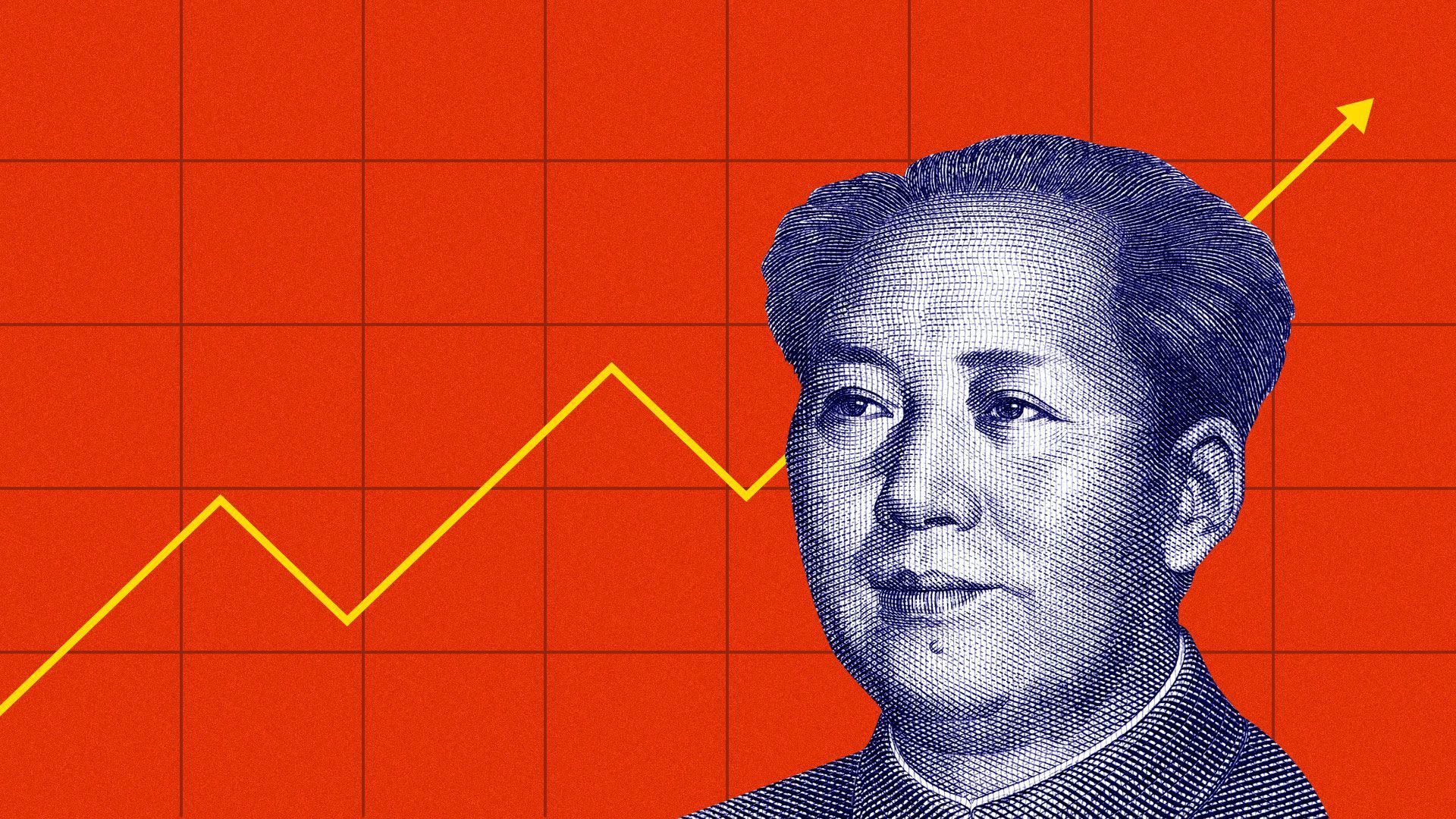China's mainland stock market has outpaced the rest of the world
Add Axios as your preferred source to
see more of our stories on Google.

Illustration: Eniola Odetunde/Axios
China's economic growth has weakened to the slowest pace in nearly three decades this year, the result of a gradual shift to a new economy and a damaging trade war with the U.S.
Its mainland stock market, made up of largely domestic-facing companies, is having a banner year — in fact, it's been the best performing major stock index in the world.
What's happening: China's onshore stocks, dubbed A shares, have delivered more than 37% total return for investors this year, based on the FTSE A share 200 index, FactSet data show.
- The A shares' return has towered over other regional markets and the U.S. in spite of the trade war and continued unrest in neighboring Hong Kong.
By the numbers:
- China's benchmark Shanghai Composite Index has risen 19% year to date
- Japan's Nikkei has gained 18%
- MSCI's index of Asian shares, excluding Japan, has risen 13%
- Hong Kong's Hang Seng is up 8%
- The S&P 500 has gained 23%
What they're saying: China's A shares have been able to shine in large part because they reflect the growth of the Chinese private sector and middle-class consumers, Asha Mehta, senior portfolio manager at Acadian Asset Management, tells Axios.
- "The underlying companies in the A share market are broadly quite different and the investors are very different," Mehta says, noting that 80%-85% of investors in the market are retail, rather than institutional investors.
- Acadian was one of the first U.S. asset managers granted a license to trade China's onshore market locally in March 2018 and one of the first to develop a fund dedicated to the onshore market.
What it means: China's A shares also have gotten a big boost from the country's deregulation and market liberalization initiatives, the Chinese government's stimulus measures and particularly from increased weighting in MSCI's emerging markets index.
- Yes, but: A major reason Chinese securities had previously been excluded from many global benchmarks, including MSCI, is that they have been prone to speculative activity, alleged government interference and a lack of governance.
The bottom line: China has the second-largest stock market in the world and is growing fast, but mainland Chinese stocks are still owned by very few outside China.
- Despite continued tension, and congressional attempts to block American investment in Chinese securities, if A shares continue to perform like they have this year, they will likely see significant inflows.


What's next: China's A shares may have further to go, as inclusion in MSCI's emerging markets index has been a major driver of inflows and more stocks are set to be added.
- MSCI announced Thursday that it would increase the A shares' weight in the EM index to 4.1%, drawing billions of dollars from both passive and active fund managers to the stocks.
- After adding Chinese stocks to its global benchmarks in 2018, following years of deliberations, MSCI says it plans to increase A shares’ weighting to 20% of the index soon.
- The MSCI EM index is tracked by around $2 trillion of funds.
Why it matters: MSCI inclusion is seen as a stamp of approval from the investment community that equities are safe.
- If and when A shares are fully included in MSCI's indexes, a full 40% of the MSCI Emerging Markets Index would be made up of Chinese stocks.
- Mehta tells Axios she thinks it could rise to an even higher level, potentially up to 50%.
Go deeper:
